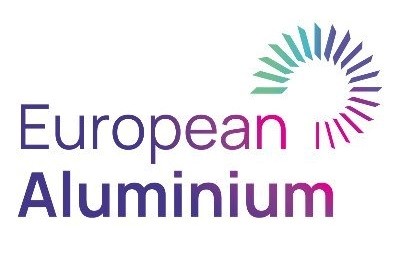

The voice of the aluminium industry in Europe, European Aluminium welcomed the latest publication of the Critical Raw Materials (CRM) and Net-Zero Industry Acts (NZIA). Together, these ideas mark a long overdue first step towards recognising the necessity for a European industrial strategy that aids in securing access to the raw materials necessary to support the twin transition and many other strategic initiatives. European Aluminium asks authorities to include aluminium in the CRM Act by highlighting its significance and generally acknowledged importance as a strategic raw material in the green transition..

Being a fundamental component of almost all renewable energy technologies prioritised in the Net-Zero Industry Act, such as solar PV systems, wind turbines, grid technologies, and batteries, aluminium is poised to play a crucial part in Europe's transition to a sustainable future.
"Europe's increasing reliance on quasi-monopolistic third-country suppliers constitutes an unacceptable vulnerability in today's precarious geopolitical climate. The proposed Critical Raw Materials Act represents a positive first step towards addressing this issue. We welcome the Commission's recognition of the need for trade defence when justified as well as their proposals for reducing administrative burdens and providing support for access to finance. However, we are perplexed that aluminium, which plays a crucial and irreplaceable role in the green transition, has been omitted from this proposal," said Paul Voss, Director General of European Aluminium.
A new analysis by Katholieke Universiteit Leuven indicates that using aluminium in clean technologies would cause aluminium demand to increase by 30% by 2030, underscoring the material's strategic significance in attaining the EU's climate ambitions. Thus, European Aluminium emphasises the necessity of maintaining and enhancing Europe's ability to manufacture and recycle aluminium.
The current energy crisis is having a severe negative impact on the European aluminium sector. As a result, primary aluminium output has decreased by 50%, and if the problem isn't fixed, it may force the shutdown of all remaining capacity. The European aluminium sector, which has already lost one-third of its manufacturing capacity over the previous 15 years, is sadly continuing to deteriorate over the long term. Allowing industries with a large carbon footprint to replace this capacity in nations like China would mean that Europe actively assists in rising global emissions, jeopardising its strategic independence and economic expansion.
Additionally, Europe's recycling and gas-dependent semi-fabrication industries are both seeing sharp drops in profitability. To make matters worse, developed nations with strong economies, like the United States, have put programmes that provide cheap energy and significant state aid, luring away investments in decarbonisation from European companies and boosting the profitability of existing aluminium production in these regions.
"With the right scope, scale and ambition, the Critical Raw Materials and Net-Zero Industry Acts can simultaneously reinforce Europe's status as the global leader on climate and provide vital support to industry. By investing in European raw materials production and recycling, we can strengthen our strategic autonomy and security of supply, and pave the way for a greener tomorrow. We stand ready to collaborate with the co-legislators to ensure that the Act includes aluminium and delivers on its promise to create a supportive regulatory environment for raw material supply chains and the net-zero industries they serve," added Voss.
In light of these difficulties, Europe has to move quickly to help its aluminium sector. Investments in low-carbon energy sources, infrastructural improvements, and decarbonisation-encouraging legislation should all be part of this assistance. Europe can do this to ensure its lucrative, competitive, and ecologically friendly aluminium sector.
Responses








